The most militarized country
Imagine the state with the world's largest percentage of the population in the army. The state in which all men from 20 to 50 are military personnel, literally sleeping with a gun under the bed. A state that, even after 50, just gives you a barrel, and is glad to see you before the tomb at the camp and the training grounds. The state, begging you to buy at least a gun (and better rifle) at a discount. A state capable of deploying from 22-thousandth in two to four hours (!) 650-thousandth, and in two days 1.7-millionth (!) Army, well trained, organized, and very well armed. (for example - the US Army - 1.3 million plus the same reserve, the Chinese Army - 2.4 million, plus 1 million reserve).
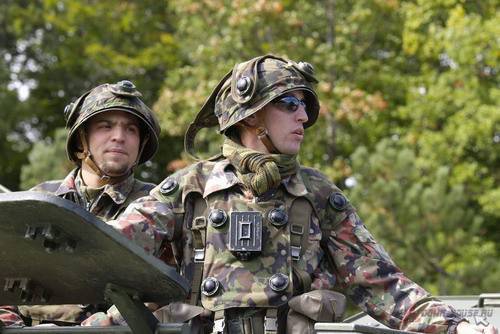
Imagine the most militarized state in the world.
And plus, keep in mind that almost all of this terrible country, armed to the teeth, from Geneva to Davos, from Zurich to Lugano, are very tall mountains, dug in with tunnels, anti-nuclear shelters, repositories weapons, "The bins of the homeland," and rocket-artillery support guns, embedded in granite.
The Swiss Army is not the only country in the world with a personnel and militia structure. By the same principle (in some approximation), for example, the Bundeswehr, which is essentially a kind of huge analogue of the Soviet "cadre" divisions, was built. Those. the system is “few soldiers + many personnel officers and non-technical officers + civilian reservists + training fees = deployment only when necessary”.
The difference between the Swiss in bringing to the absolute the idea of "the people and the army are one."
It looks so
The total number of military personnel in the country is about 9000, mainly in aviation. Being in the service and retraining - about 10-15 thousand at a time. A soldier is called up for 90 days in the so-called Rekrutenschule - Ecole de recrue. After graduation, the state gives the soldier a personal weapon with two full shops (a rifle and / or pistol), a “canned minister”, three sets of uniforms for all seasons, equipment, body armor and a helmet, with which he departs home. He keeps it as he wants - no one will check.
Before 32, the soldier is in the Austsug position, before the 42's Landver, and until 50 is the Landsturm. Ordinary austsug-for 10 years, in its part, eight fees for three weeks, Landver - three times for two weeks, Landsturm - 1 once every two weeks. As soon as 51 marks the year, you are officially fired from the army, taken with a rifle, pistol and canned food, and donated with a loaded pump-shotgun and a mobilization prescription - in case of the Big Zvizdets and total mobilization.
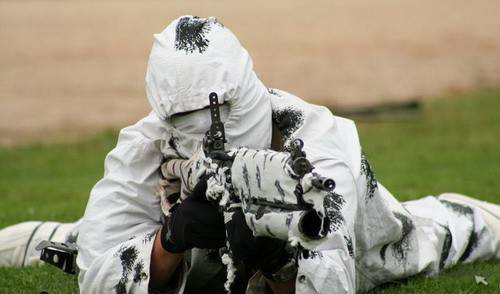
The peculiarity of the Swiss army is the enhanced training of reservist officers. Those who want to become officers pass additional fees - each rank - approximately 100 days in total. This, by the way, is used, to the displeasure of the employers (especially the Banking Association), by all the bosses - from the CEO to the small head of the department. They say that they simply dump the wife and work on picnics with the lawful preservation of the c / o - the bachelor parties with shooting, but this is not quite the case - the service goes there. The reason is rather that correctly getting into the training camps you can lie down over the machine gun and at the same time communicate with the right people, current or possible colleagues who are superior, useful deputy politicians, and just with the neighbor, because no one can decline from the service, absolutely no one neither the student (yes, directly from the audience, easily), nor the president himself, if they are men.
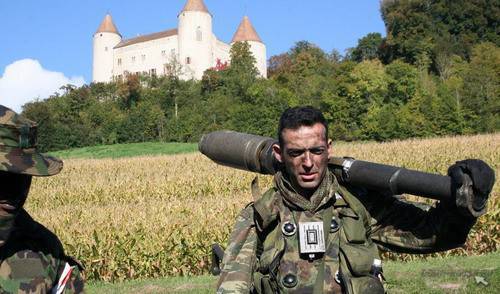
Do you know what is the country's military budget of 7.5 million people? - almost five billion !!! dollars - almost 20 percent. What's in service? A lot of things - more than 800 (!) tanks and armored vehicles (420 Leopards-2, 150 M-109). The country has a total length of 300 km, 14 squadrons with more than 350 combat, 120 training aircraft and 100 helicopters! The park is constantly being updated, such as, for example, in the American army, when a pilot is often not allowed here younger than his plane.
The state sells illiquid assets and a carefully repaired and restored army weapon to citizens with a significant discount, and especially offers it to women, the registration is the simplest, and only for the new, bought in a shop. When buying from hand - not required. By conservative estimates, only army weapons, semi-automatic rifles and hunting weapons are in the hands of the population - up to one and a half million. Plus about two million pistols. The fourth place in the world in trunks per capita and the second in the percentage of the population with trunks.
There are dozens of shooting clubs in the country, there are almost as many shooting galleries as cafes.
How does a soldier serve? It seems to be quite good - two weekends a week from the dismissal, does not build toilets, does not clean the potatoes, does not wash the dishes, does not paint the fences - all are done by private companies. Now sit down at all - he doesn't even go to guard! The perimeter of the military guard is also guarded by private security companies!
Yes, it's just a holiday, not a service! Resort!
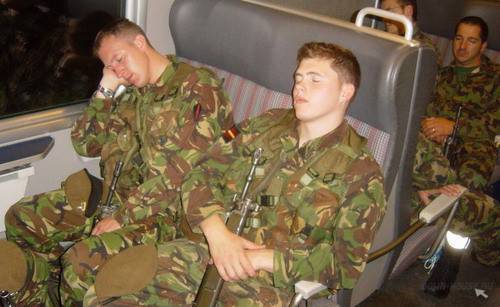
Well, we have depicted a barrel of honey, we will pay for the tar
Let's start with the same "resort". The rise in 5-00, and then - all run. With breaks to devour and shit - a solid war - physical training, rifle, hand-to-hand, driving, equipment, mountaineering, and again in a circle. And so to rebound. And hang up - in 24-00. And in 5-00 - again rise. They say such a little strained in what the army is.
Soldiers chase so that they turn into Terminators and Rambo in one bottle. An example is an officer who pleased the Darwin Award-2007. First, before exhaustion, he teaches his platoon to handle a pistol, and then to check (as he used to) he throws himself with a bayonet at a tortured fighter. The result - shot at full automatic.
Further. Well, yes, shooting enthusiasm, healthy patriotism, etc., but the tenacious paws of the motherland are also available. In case of failure to appear on the agenda (session, wedding, binge, vacation, etc.), a fine and prison is shining under such a terrible article that an ordinary Swiss can put an end to a career. Nobody will ever take him to decent work anymore. White ticket? Are you blind, sick or expat? Get an 3 percent army tax. Alternate pacifist? Get the same agenda, but on the racket of municipal shit, and a half times more often. Work abroad and for no reason forgot / did not get to the fees? See above - prison is your home.
Further. Calm quiet country? Myth! Second place in the world (non-combatant) in mortality from firearms per capita! However, in fairness - this is the result of overconcentration of the trunks. If in the rest of Europe slobs, a rake in the balls, a frying pan in the forehead or a noose around the neck are waiting for a thief or a suicide bomber, then in Switzerland - SIG, Sphinx, or Glock.
One day in the swiss army
The first days of October. In the air, saturated with the aromas of the Alpine foothills, webs are worn and as if the unceasing distant chime of cow bells hangs. In the midst of all this pacification and magnificence, thunder peals are heard from time to time. This is an autumn exercise at a tankodrom near the village of Elm.
We turn from the highway to the side road and after a couple of hundred meters we drive up to a squat rectangular structure with an internal parade-ground and two exits. At the 14 Tank Tank Battalion, three officers meet us: Chief Lieutenant Georg Klingler, Captain Michael Isenring, and Lieutenant Translator Alexey Gromov. Our day in the Swiss army began exactly on schedule. And with the obligatory cup of morning coffee with croissants in the headquarters room.
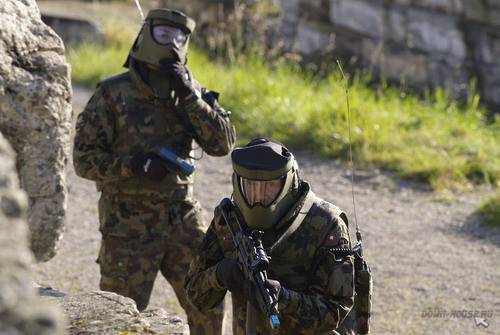
GROUND IN MOUNTAINS
The Swiss Confederation is a rather small state and there are only two tankodroms in its army. One of them is located in the Wilhenalp mountain valley. It has been around for more than 40 years, but it has been upgraded with the latest electronic technology and is considered the largest in Europe. The snowy cliffs of the Toddy mountain range surrounding the small valley exceed the safety requirements of 500 meters and are an excellent natural barrier when firing live ammunition. Noticeable is a huge hangar with machine shops for twenty combat vehicles such as German heavy modernized Leopard tank and lightweight SP 2000 tanks of Swedish origin. And on the pedestal the English "Centurion" froze.
The workshops are serviced by civilians under a normal working contract. On the one hand, the brick structure of the ammunition storehouses adjoins the hangar, on the other hand, open shooting ranges for infantry soldiers, who here are loudly called grenadiers. All buildings are compactly located at the beginning of the training ground, at some distance from the tower of the command post, stuffed with the most advanced instruments to monitor the progress of the exercises. Armored vehicles move at a distance of not less than a kilometer, but are equipped with chips, so any of their maneuvers is reflected on the electronic map, and the video surveillance system further enhances the effect of being present where the “fighting” takes place. The tower is constantly on duty six officers, but if the commanders of units arrive, the number of observers increases to twelve people. Nearby, an 15-meter mast with a heat chamber, which records any movement on mountain paths, soared that nothing living would fall into the zone of fire.
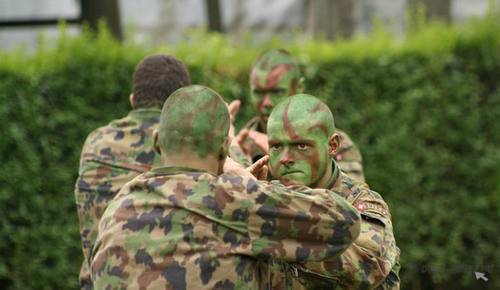
About 20 shots are fired at the test site per day. To impress this figure, we add that one tank shot costs more than 700 dollars. The fire is mainly fighting 120-mm shells. But in recent years, due to the campaign to save the army that has developed in the army, an ersatz-muzzle of smaller caliber is inserted into the barrels of tank guns, which naturally reduces the cost of combat training somewhat.
For four weeks of the autumn exercises, tank brigades, and there are two of them, receive 49 thousand liters of diesel fuel. In total, the Swiss armed forces consist of 687 tanks and 483 units of other armored vehicles. So they are puzzled at the General Staff in Bern, how to divide the fuel obtained between the units, so that with minimal costs, but with a good idea to conduct classes.
After waiting for their turn, the next pair of light armored vehicles takes the position, in the iron belly of which there are ten paratroopers. They sit on low iron benches close to each other, squeezing the SIG 550 assault rifle between their knees. Soldiers are also sewn into the camouflage of the chip, so their crossing over a mountain stream at a distant turn on the tower will almost see with their own eyes. But now the prohibiting red signal of the thermal chamber went out, the upper hatches slammed shut and along the highway of the landfill, firing the first shot, the tanks confidently rushed, raising a cloud of dust into the air. All those present at the KP as a team put in their ears a personal set of earplugs, as prescribed by the charter. In the Swiss army, as, indeed, the Swiss have, if it is already established by the rules, they will all be executed without question. It is in character.

WEAPONS IN EVERY FAMILY
In the Swiss army, there are thousands of regular military personnel serving 3,5: General Staff officers, non-commissioned officers and special forces and military police. The remaining 120 thousands of so-called active militia soldiers and officers, as well as about 230 thousands of reservists make up the main "muscular" mass of the armed forces.
This unique Swiss police system has its roots in the deep Middle Ages and is explained by historical the reasons for the development of the country, constantly torn by local wars between the cantons or forced to fight external enemies. The first military treaty of the cantons of united Switzerland was signed in 1798, it was then that, as is believed, the current Swiss army arose. This treaty provided for universal military duty for the male population of this kind of union state. True, there was an opportunity to pay off military service: wealthy citizens voluntarily contributed a considerable amount to the cantonal box office. However, the same repurchase deals are stipulated in the modern army charter.
During the Second World War, surrounded on all sides by pro-fascist regimes and having joint borders with Nazi Germany, Switzerland resorted to the distribution of military weapons to military servicemen. The whole country was, as it were, drafted into the active army, continuing to work in factories, offices or farms. This combat service was carried only by mobile combat units in the border areas and in the mountains. It was then that General Guzé, the army commander-in-chief who was elected by parliament, worked out a plan for the construction of main army warehouses and air defense facilities in the depths of the St. Moritz, Gotthard and Glarus mountain ranges that was later implemented.
A weapon from the time of the war is kept in families - in wardrobes and closets, next to a uniform and a military backpack. By the way, in the army, as in the police, only citizens of Switzerland have the right to serve.
Depending on the type of military, the Swiss military is obliged to devote hours from 180 to 270 to military affairs. For the weeks that are allotted to combat training, defenders of the homeland are saved up to 80% salary and, of course, the workplace itself. The soldier receives from the army a salary (salary) up to 6 dollars per day, an officer receives an 8,5 dollar.
It should be noted here that, along with skiing, shooting is considered a national sport in the country. But how else: 270 of thousands of reservists and 120 of thousands of active military militiamen during their service must submit a soldier’s book with notes on the shooting and their results. Shooting is sacred, these are traditions that have not been changed for centuries in conservative Switzerland. The administration of a small community may not find the necessary money to repair the road, but successfully voted on the proud descendants of William Tel to a vote on the project to build a new shooting range and modernize the old one. And there are thousands of such shooting ranges and closed shooting galleries scattered around the most peaceful country in Europe. National and regional competitions in pistol or assault rifle shooting are always held when there is a mass gathering of people.
NOT FOR RUSSIAN ...
At 12, during the platoon hours, soldiers and officers on foot marched down to the wooden structure of Elm shooting gallery, where, for the duration of the exercises, they organize something like a canteen. We did not notice the pot with porridge. The soldiers received a good piece of cordon blue (chicken breast with ham and cheese) with pasta and vegetables. The officers and non-commissioned officers ate the same, but after their subordinates and at the same tables. Fifteen minutes of rest on the sunny slope, and now the first guttural teams raise uneven and unshaven soldiers, the last cigarettes are extinguished ...
By the way, the Swiss units do not go for a drill, the army refused Prussian drill at the end of the 19th century. A compulsory military training takes place in the recruit schools for six months, at the three-week gatherings the soldiers do not have time, and maybe they just do not want to reorganize in a military way. Which, in fact, is not their responsibility. Even the daily routine says this: getting up at 6 in the morning, personal hygiene, breakfast, training at the training ground, lunch, shooting, dinner, personal time. Total hang up in 24.00.
The barracks we visited is considered small and holds up to 130 people. It is divided into soldiers (up to 20 people), non-commissioned officers and officers' rooms (up to six people). They are almost indistinguishable from each other: both there and there two-tier iron beds with thin mattresses and sleeping bags. The backs of the beds are attached to large soldiers' backpacks with personal items. Shoe racks stretch along the walls of the barracks corridor. Toilets and showers are amazing clean.
About hazing in the Swiss barracks have not heard. But after all, young men spend not so much time in them either. Here, after all, they do not go to the army, but come for a few weeks and go home. Moreover, during the obligatory exercises, Saturday and Sunday are held at home.
With all the striking democratic order with discipline in the militia units, there are no particular problems. Because a system of monetary fines has been developed and has been painted to the smallest detail, and they are several orders of magnitude higher than on a “citizen” for any non-compliance with the rules of the army hostel and violation of the charter. Control functions are performed by personnel officers. The decision on the amount of the fine is made by the unit commander. A rare criminal offense is considered by the military prosecutor's office.
We discussed all this with the officers accompanying us. The collected, clean-shaven Georg Klingler in two weeks, returning to the “citizen”, will again become a lawyer. For now he accurately answers questions of journalists. The chief lieutenant treats the annual three-week service in the army quite loyally, for she not only does not interfere with his career, but gives a lot of life impressions that he can also apply in legal practice.
But Captain Michael Isenring long ago, after graduating from the recruit school, was sent to the school for police officers, where they took into account his main civilian profession as a programmer. Years passed, the young officer made a certain career in the militia army, but he never wanted to become a regular soldier. By his own admission, Michael, military service almost does not intersect with his civil life. The agenda comes once a year, the uniform, the backpack, the weapon are removed from the closet — and not Michael Isenring, a programmer, a loving husband and father of two children, but the Hauptmann Isenring come out of the apartment.
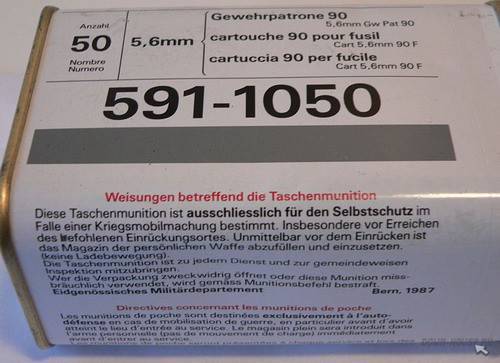
At the age of seven, Alexey Gromov came with his family to Switzerland. His Russian parents, physicists, work under contract at the Zurich Technical University. Awareness of oneself and one's place in a foreign country is always difficult. Having received a Swiss passport in 18 for years, and with it an agenda for a recruiting office, the guy decided to try himself in the army, although he had already started working as a computer programmer at the university. Knowledge of the Russian language made him in the eyes of the command of the non-commissioned officers almost a polyglot. After all, Russian is considered to be a very rare and difficult language. So Alexey was sent to the officers' school and now serves as a lieutenant of communications and a military translator.
But the young man does not hide his disappointment: “When going to the training camp, the soldiers and officers are not even engaged in physical training, although they have all the conditions for this. They just serve their time. It does not suit me. I imagined another army. Just probably in pure Russian. My Swiss comrades find everything in perfect order. ”
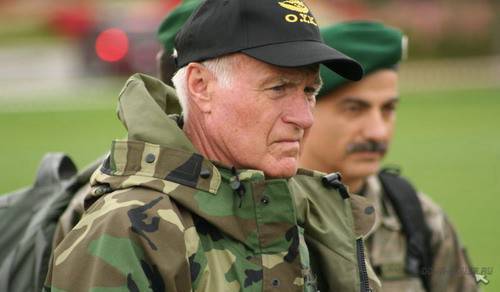

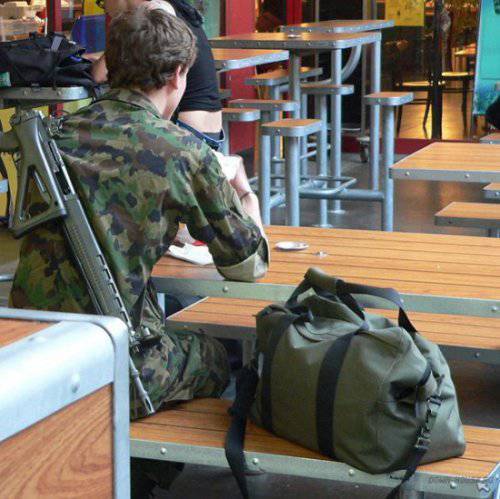
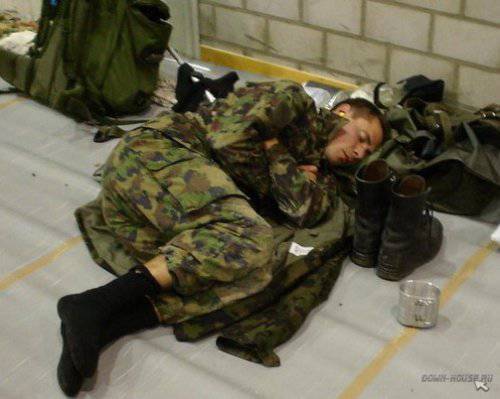
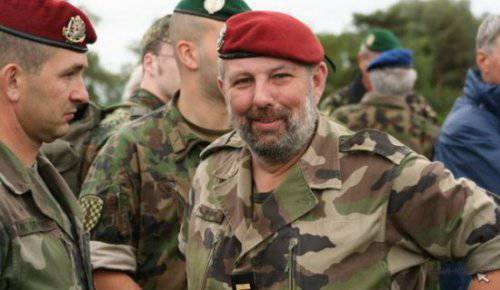
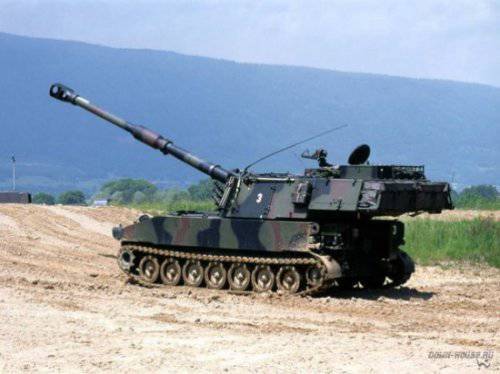
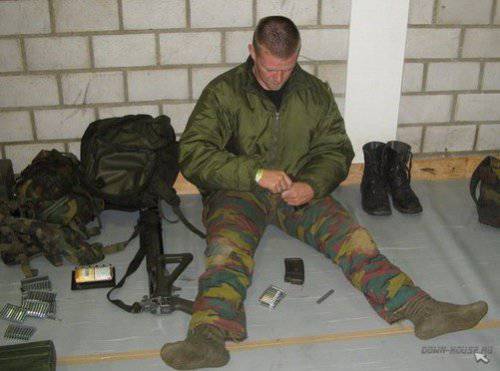
Information